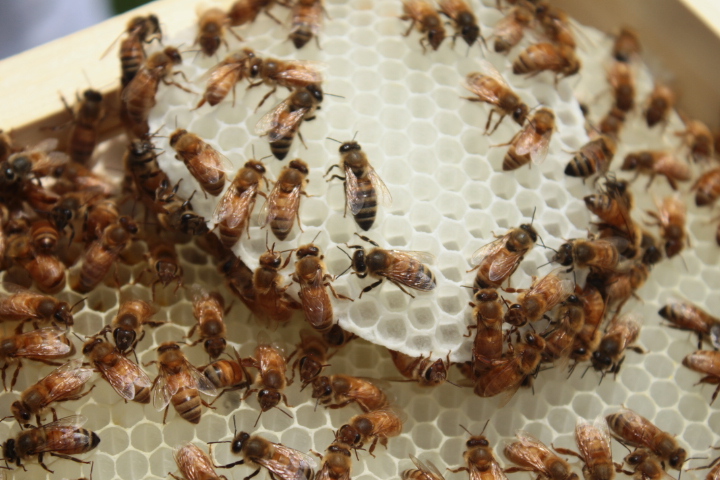If you ask any beekeeper, they will probably tell you that the aroma of the inside of a beehive is the best stress reliever they know of. This is unsurprising when you’ve studied the healing affects that honeybee products carry. The relief of bodily ailments by comb, pollen, propolis, honey, or bee stings is known as apitherapy and has been practiced in varying amounts for thousands of years.
Over the past decades, this kind of healing has been commercialized all over the world. In parts of Europe, spas exist for sting-therapy—a treatment where bee venom is strategically injected into the body. At similar places, the action of breathing in a hive’s air is replicated by allowing clients to sit in a sauna-type room where ventilation leaks into the room from bee hives.
Less intense and more common versions of apitherapy are practiced everywhere. Many people will use bee pollen in medicinal tinctures of food and even more use the comb in soaps and other body products.
While humans can take advantage of the healing properties that bees have, the bees themselves are masters of their own medicine. Propolis is a sticky product made by bees for their own care and for the health of the hive body. While different types of apis mellifera will create more propolis than others, they all use it the same. This past week, I noticed within my own hives the difference in propolis production. While both queens are Carniolans, I believe that my second hive is made up of primarily Italian workers because the amounts of propolis inside the hive were more than double the amounts in the first hive.
Any space smaller than 3/8 inch (the space a honeybee can fit through), is filled with propolis while any space bigger than 3/8 inch has the potential to be filled with comb. This protects the entirety of the inside of the hive as well as supplying bees with their own medicine.
Another notes about propolis…
Pro, meaning ‘for’, and polis, the term for small cities in Ancient Greece, tell us an incredible amount about the etymology of the word. It’s the perfect name for the medicine that protects the community of bees. It’s a medicine, literally “for the city.” I would also assume that since the structure of the honeybee colony was what inspired Lycurgus, the founder of Sparta, to model his government off of, that the word would have been invented around this time in history.


Leave a Reply